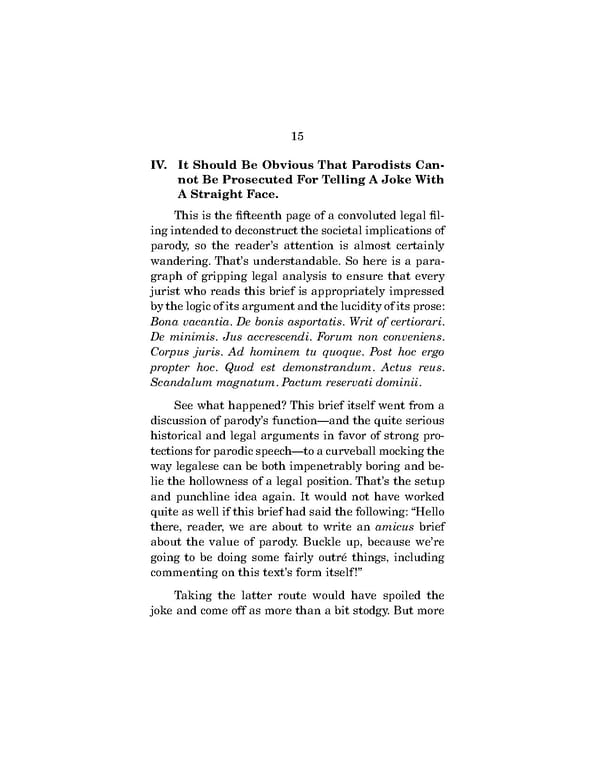15 IV. It Should Be Obvious That Parodists Can- not Be Prosecuted For Telling A Joke With A Straight Face. This is the fifteenth page of a convoluted legal fil- ing intended to deconstruct the societal implications of parody, so the reader’s attention is almost certainly wandering. That’s understandable. So here is a para- graph of gripping legal analysis to ensure that every jurist who reads this brief is appropriately impressed by the logic of its argument and the lucidity of its prose: Bona vacantia. De bonis asportatis. Writ of certiorari. De minimis. Jus accrescendi. Forum non conveniens. Corpus juris. Ad hominem tu quoque. Post hoc ergo propter hoc. Quod est demonstrandum. Actus reus. Scandalum magnatum. Pactum reservati dominii. See what happened? This brief itself went from a discussion of parody’s function—and the quite serious historical and legal arguments in favor of strong pro- tections for parodic speech—to a curveball mocking the way legalese can be both impenetrably boring and be- lie the hollowness of a legal position. That’s the setup and punchline idea again. It would not have worked quite as well if this brief had said the following: “Hello there, reader, we are about to write an amicus brief about the value of parody. Buckle up, because we’re going to be doing some fairly outré things, including commenting on this text’s form itself!” Taking the latter route would have spoiled the joke and come off as more than a bit stodgy. But more
 Onion - Legal Case for Parody Page 19 Page 21
Onion - Legal Case for Parody Page 19 Page 21